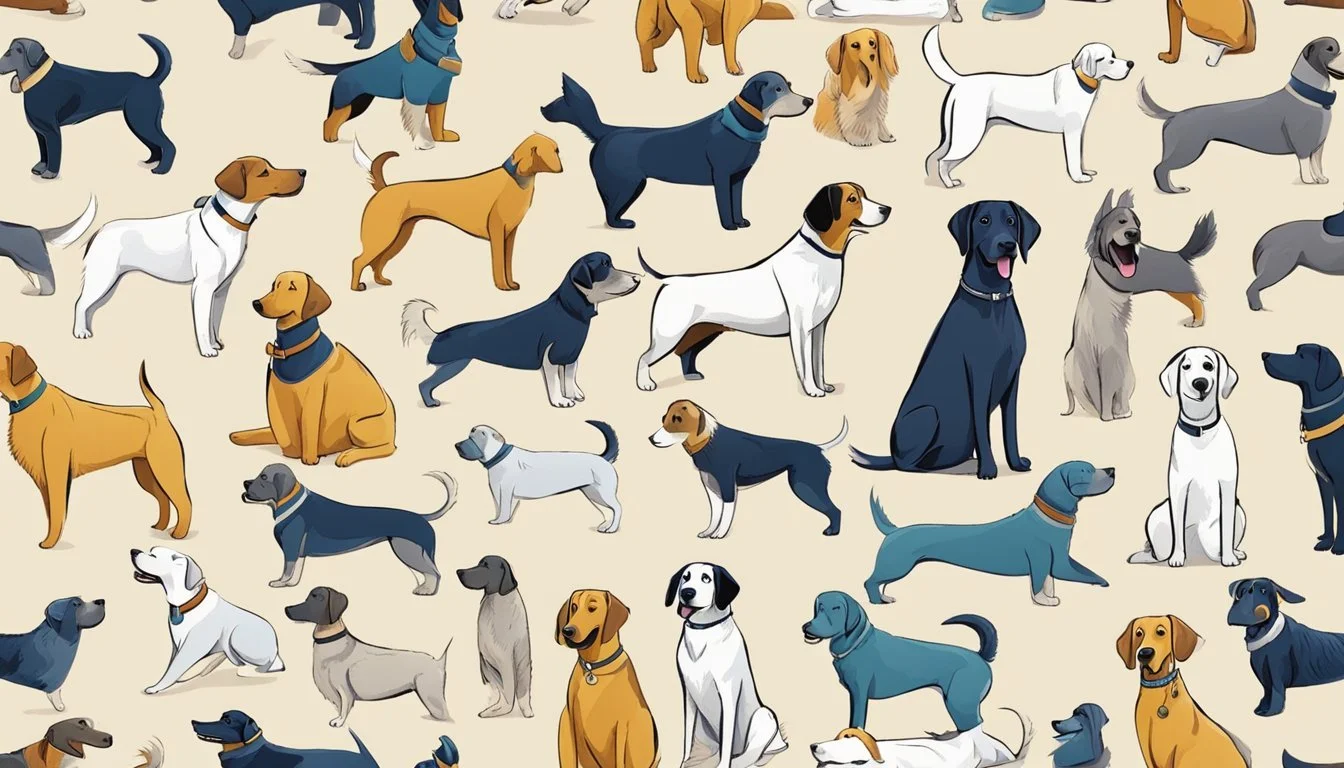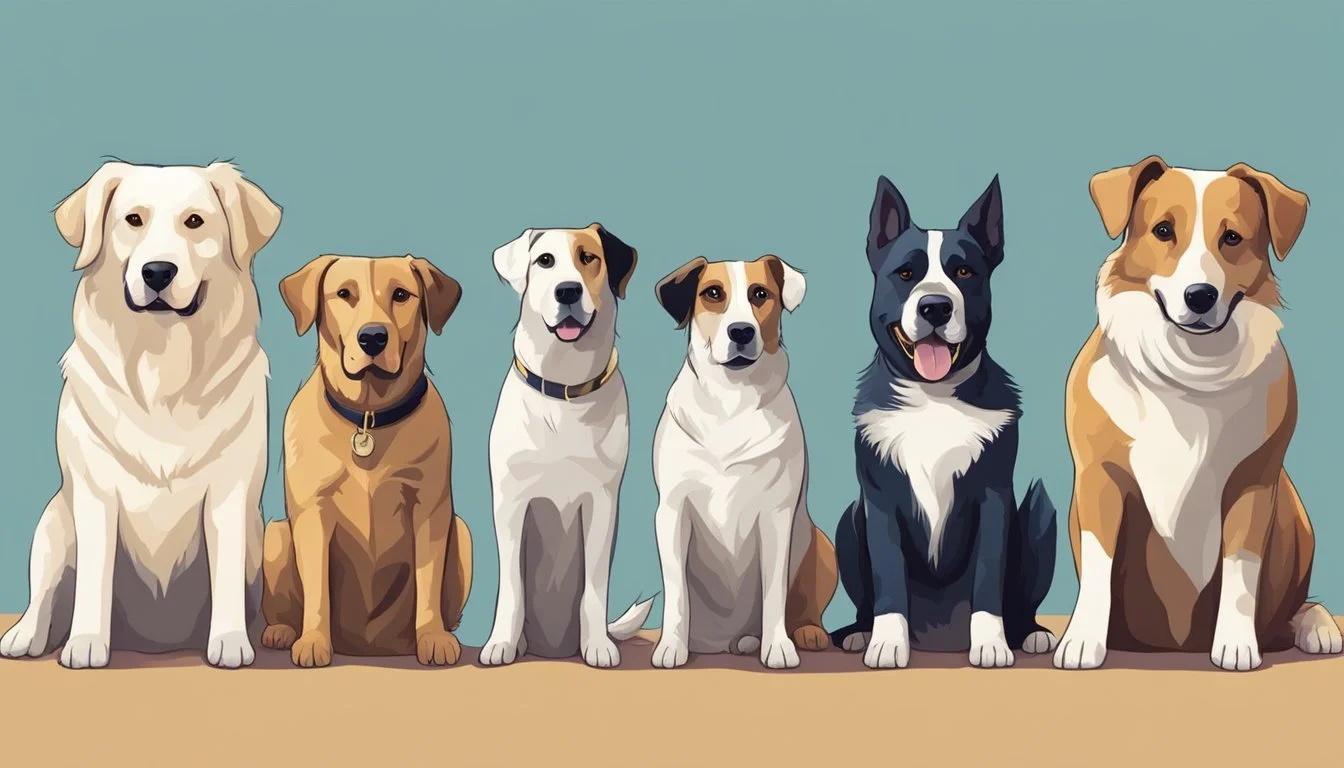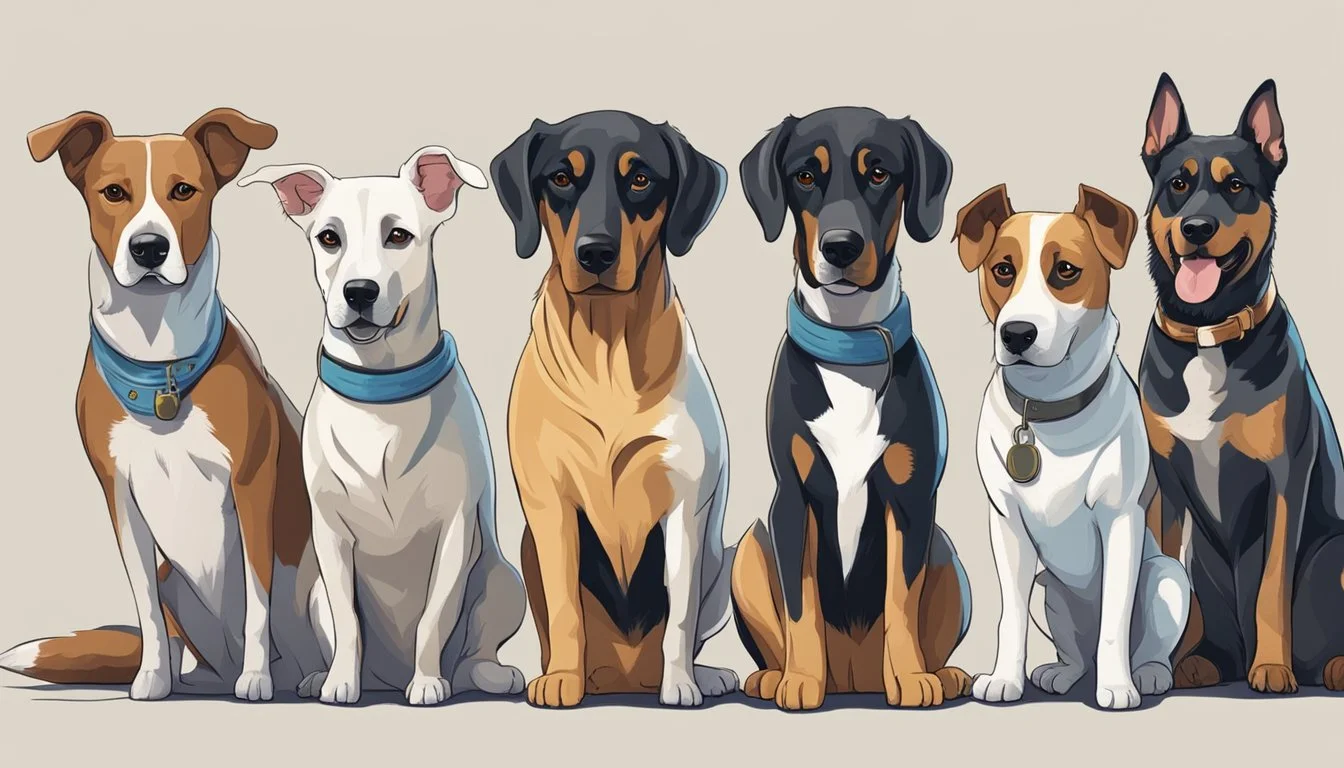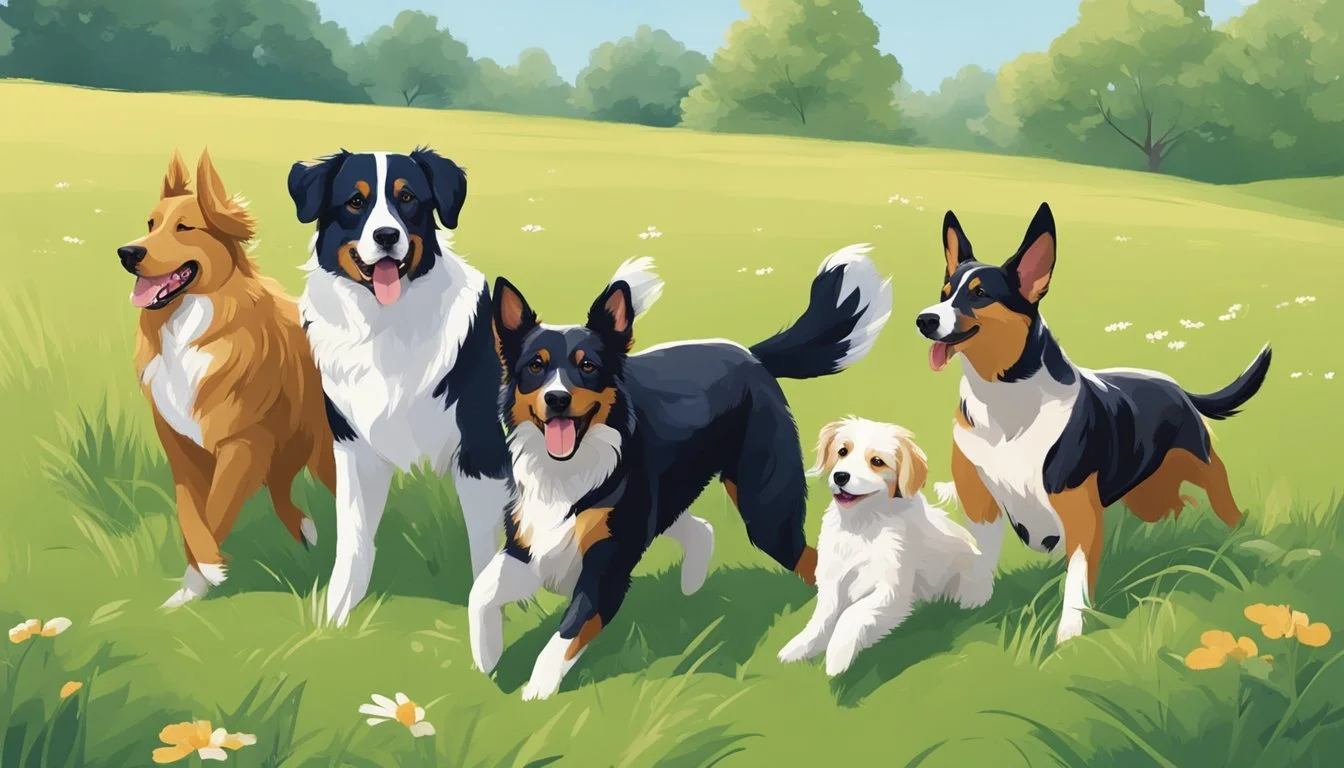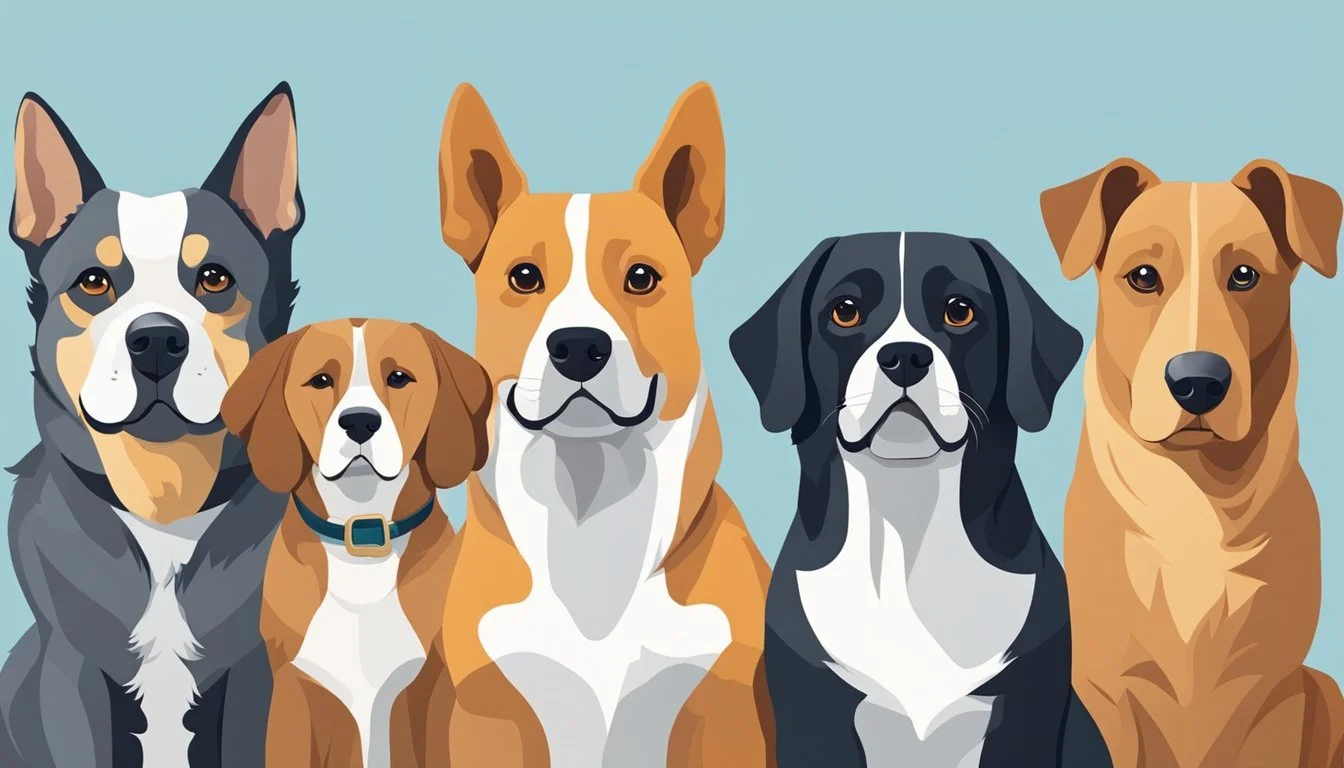Discover Your Pup: The 5 Dog Personality Types You Need to Know
Dogs have long been cherished companions, known for their loyalty and affection. As unique individuals, each canine possesses distinct traits that shape their interactions with humans and other animals. Understanding these characteristics can greatly enhance the bond between dogs and their owners.
Recognizing different dog personality types helps owners tailor their approach to training, care, and relationship-building with their furry friends. By identifying a dog's dominant personality traits, pet parents can better meet their needs, anticipate behaviors, and create a more harmonious household. This knowledge also aids in selecting the right dog for a family's lifestyle and expectations.
1) The Charming Socialite
The Charming Socialite is a dog personality type characterized by an outgoing and friendly nature. These dogs thrive on social interactions with both humans and other animals.
Charming Socialites are often the center of attention wherever they go. They eagerly approach new people and dogs, wagging their tails and seeking affection.
These dogs are typically easy to train due to their desire to please and interact with their owners. They respond well to positive reinforcement techniques and enjoy learning new tricks.
Socialite dogs tend to be adaptable and comfortable in various environments. They're often good candidates for therapy work or as family pets in busy households.
While their friendly nature is generally positive, Charming Socialites may sometimes become overexcited. Proper training and socialization can help them maintain appropriate behavior in different situations.
These dogs usually get along well with children and other pets. Their natural sociability makes them excellent companions for active families or individuals who enjoy an engaging canine presence.
2) The Independent Thinker
Independent thinkers are intelligent and inquisitive dogs who prefer to do things their own way. These canines often exhibit a strong sense of self-reliance and may not always seek approval from their owners.
Breeds like Siberian Huskies, Shiba Inus, and Basset Hounds typically fall into this category. They possess a natural inclination towards problem-solving and can be quite resourceful when faced with challenges.
These dogs may appear aloof or stubborn at times, as they tend to make decisions based on their own judgment rather than simply following commands. They require patience and understanding from their owners.
Training independent thinkers can be more challenging compared to other personality types. They respond well to positive reinforcement techniques and enjoy mental stimulation through puzzles and interactive toys.
Owners of independent thinkers should provide them with adequate space and opportunities for exploration. These dogs thrive when given tasks that allow them to use their problem-solving skills and natural intelligence.
While they may not be as overtly affectionate as some other personality types, independent thinkers can form strong bonds with their families. They often show their loyalty through subtle gestures and protective behaviors.
3) The Playful Adventurer
The Playful Adventurer is a lively and energetic dog personality type. These dogs are always ready for action and eager to explore their surroundings. They thrive on new experiences and physical activities.
Playful Adventurers often display traits associated with the Explorer personality types. They are spontaneous, curious, and love to investigate their environment. These dogs excel in activities that challenge both their body and mind.
Breeds that commonly exhibit this personality type include Labrador Retrievers, Border Collies, and Jack Russell Terriers. However, any dog can possess these traits regardless of breed.
Training Playful Adventurers requires patience and creativity. They respond well to positive reinforcement techniques and enjoy learning new tricks. Providing them with plenty of mental and physical stimulation is crucial to prevent boredom and destructive behaviors.
Owners of Playful Adventurers should be prepared for an active lifestyle. These dogs need regular exercise, playtime, and opportunities for exploration. They make excellent companions for outdoor enthusiasts and families with active children.
4) The Loyal Guardian
The Loyal Guardian personality type embodies protective instincts and unwavering devotion to their human family. These dogs are known for their strong sense of duty and commitment to safeguarding their home and loved ones.
Guardian dogs tend to be alert and vigilant, always on the lookout for potential threats. They may appear reserved or cautious around strangers, taking time to warm up to new people.
Training is essential for Loyal Guardians to ensure they can distinguish between genuine threats and harmless situations. With proper socialization, these dogs can learn to be more accepting of unfamiliar people and environments.
Breeds often associated with the Loyal Guardian personality include German Shepherds, Rottweilers, and Doberman Pinschers. However, dogs of any breed can display these traits.
Loyal Guardians thrive in homes where they have a clear role and purpose. They excel in tasks that allow them to utilize their protective instincts, such as obedience work or even professional guard dog duties.
These dogs form deep bonds with their families and are typically affectionate and gentle with those they trust. Their loyalty makes them excellent companions for owners who appreciate a devoted and protective canine friend.
5) The Gentle Observer
The Gentle Observer is a calm and watchful dog personality type. These canines prefer to take in their surroundings from a distance, often finding a cozy spot to survey the scene.
Gentle Observers are typically quieter than other dogs, rarely barking without good reason. They excel at reading the room and picking up on subtle cues from both humans and other animals.
These dogs tend to be less demanding of attention, content to simply be near their owners without constant interaction. Their gentle nature makes them excellent companions for seniors or those who prefer a more laid-back pet.
Gentle Observers often thrive in structured environments with predictable routines. They may become anxious or withdrawn when faced with sudden changes or loud, chaotic situations.
While not typically high-energy, these dogs still benefit from regular exercise and mental stimulation. Puzzle toys and scent work activities can be particularly engaging for their observant minds.
Training Gentle Observers requires patience and positive reinforcement. They respond well to gentle guidance and may shut down if faced with harsh corrections or loud commands.
Understanding Dog Personality Types
Dogs exhibit distinct personality traits that shape their behavior and interactions. Recognizing these traits helps owners provide appropriate care and training for their canine companions.
The Science Behind Dog Personalities
Research has identified five major personality types in dogs. These categories stem from studies on canine behavior and genetics. Confident dogs display assertive traits and natural leadership tendencies. Shy or timid dogs may be more reserved and cautious in new situations.
Adaptable dogs adjust easily to different environments and social settings. Independent dogs often prefer solitude and may be less responsive to commands. Friendly dogs are social and eager to interact with humans and other animals.
Breed plays a role in personality, but individual experiences and upbringing also shape a dog's traits. Environmental factors, socialization, and training influence how a dog's innate tendencies manifest.
Why Dog Personalities Matter
Understanding a dog's personality type is crucial for effective training and care. It helps owners tailor their approach to suit their pet's unique needs and tendencies. For confident dogs, consistent leadership and clear boundaries are essential.
Shy dogs benefit from gentle encouragement and positive reinforcement to build confidence. Adaptable dogs thrive with varied experiences and social interactions. Independent dogs may require patience and creative motivation techniques.
Recognizing personality traits aids in selecting suitable activities and environments for a dog. It also helps predict how a dog might react in different situations, improving safety and reducing stress for both pet and owner.
Matching a dog's personality to an owner's lifestyle increases the likelihood of a harmonious relationship. This knowledge enables more effective communication and strengthens the human-canine bond.
Training and Socialization Tips
Effective dog training and socialization require tailored approaches based on each dog's unique personality. Understanding a dog's temperament helps owners develop suitable strategies for teaching commands and fostering positive interactions.
Tailoring Training to Personality
Confident dogs often respond well to assertive, consistent training methods. Use clear commands and reward-based techniques to reinforce desired behaviors. For shy or fearful dogs, gentle encouragement and patience are key. Create a calm environment and avoid loud noises or sudden movements that may startle them.
Independent thinkers benefit from varied training sessions to keep them engaged. Incorporate mental stimulation through puzzle toys and new challenges. Adaptable dogs typically learn quickly but may need extra motivation to stay focused.
For high-energy dogs, combine training with physical exercise. Short, frequent sessions help maintain their attention. Always use positive reinforcement across all personality types to build trust and strengthen the bond between dog and owner.
Importance of Early Socialization
Early socialization is crucial for developing well-adjusted dogs. Expose puppies to various people, animals, and environments between 3-16 weeks of age. This critical period shapes their future behavior and confidence levels.
Introduce new experiences gradually, especially for shy or fearful dogs. Use treats and praise to create positive associations. Confident puppies may need guidance to learn appropriate social boundaries.
Organize puppy playdates and attend obedience classes to enhance social skills. These controlled settings allow dogs to practice interacting with others under supervision. Continue socialization throughout adulthood to maintain friendly, adaptable behavior.
For older dogs with limited early socialization, patience and consistency are essential. Start with low-stress situations and slowly increase exposure to new stimuli. Professional trainers can provide valuable guidance for addressing specific socialization challenges.

